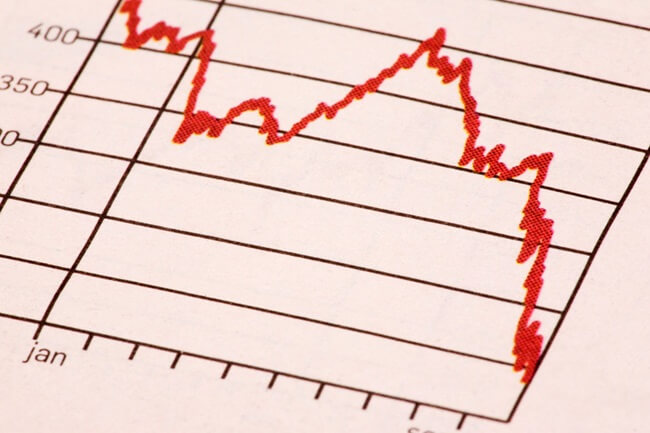Emotional Phases of a Research Project: PhD and Postdoc Stress
Stress is a rather typical aspect of most research projects because every research project has five characteristic emotional phases: You start with naïve enthusiasm, become competent and disillusioned, you want to give up (the stress phase, slump or dip), you recover, and finally, you round up and exit. How do you survive PhD stress and postdoc stress?
Understanding the General Pattern of PhD Stress and Postdoc Stress Helps You Survive Difficult Times
I have supervised many PhD students and postdocs, and there seems to be a general pattern that appears repeatedly leading to PhD stress and postdoc stress. Knowing these phases may help to survive the frustration and “The Dip,” which generally occurs after half of the project is done.
In Year 1, You Start with Naïve Enthusiasm
You start with excitement and energy and learn all the new techniques. You get to know the environment and the key people (secretaries, technicians, collaboration partners, etc.). You are unaware of the problems and obstacles. You give the best; you have to do a good job.
In Year 2, You Become Competent and Disillusioned, Leading to PhD or Postdoc Stress
In year 2, you become pretty competent and know how the game is played. You know the key people and have built important relationships. You also become aware of the limitations of your situation, you understand the technical, personal and political obstacles for your research.
After Two Years, Most Young Scientists Experience “The Dip” – Even More PhD stress or Postdoc Stress
At the end of year 2, you suddenly realize that you have not generated enough data to finish your project in time, many
experiments have failed, your results are fragmented, and only a fraction of your data can be published. After starting with fun and enthusiasm, there is a long slog between getting competent and publishing.
You may start to question the entire project, the study’s design, the validity of your incomplete results, or the competence of your supervisor. You may feel lonely because you are now the only expert on the subject, and even your supervisor knows less than you do about your specific topic.
Furthermore, you may even question your ability to pursue a successful research project (imposter syndrome) or become excellent in your field – read more here: I am just an average scientist. This is a major internal reason for PhD stress and postdoc stress.
This may also be a difficult time for the relationship with your supervisor.
This is nearly inevitable. It is the classical dip when many young scientists consider quitting research, stopping their projects, or leaving their jobs. It is essential to know about this phase to survive and *not* give up.
In the Third Year, You Recover and Start to Harvest
If things go well, you learn to cope with the stress and recover from the frustration. Your supervisor may have coached or pulled you from “The Dip.” You learn to adapt, become self-sufficient, and be responsible for your success.
You know the techniques, repeat many processes you have done before, develop efficient routines, and the work becomes manageable again. You create a certain degree of mastery in your field. Often, students finally generate conclusive data, which helps make sense of the previous data.
In the Last Year, You Round Up and Exit
In the last year, you are aware that the end of the project is getting nearer. If your project did not run well, you developed an exit strategy to make the best out of it, published your paper as well as possible, and/or created a nice thesis.
If your project did run exceptionally well, you will try to increase the quality of the research even more to publish it even better.
However, in many cases, the project, the funding, or your contract come to an end. You develop an exit strategy and start to think about your life *after* this project.
You may consider the next project(s) and/or the next career move within or outside of academia.
The phases are not always linear
I have seen these five phases again and again when working with PhD students and postdocs. It’s important to note that these phases of stress and resolution might not always be as linear or universal as presented. Individual experiences can vary significantly based on personal circumstances, the nature of the research, and the environment of the academic institution.
However, knowing the general patterns will help you substantially handle your situation much more easily.
Postdocs Go Through the Cycle Faster – Repeated Postdoc Stress
If postdocs have a 2-year contract, they go through the cycle faster because, after one year, they realize that there is only one year left to finish the project and publish the paper.
The considerable risk is to leave with one or several unfinished projects, which do not serve to find the next position because they are not published.
The supervisor may help get additional funding to extend the contract, especially when the project is big, or there are several unfinished projects.
This may restart the cycle of postdoc stress (naïve enthusiasm, disillusion, dip, recovery, and round-up) .
If You Are Frustrated for a Longer Period, Check Carefully Whether You Are in “The Dip”
If your research project sucks, you may be just in the classical dip. Discuss your concerns with your colleagues and your supervisor to ensure that your frustration is only a result of the emotional phase of your project and not a result of a poorly designed project, lousy working conditions, scientific misconduct, a colleague who is a bully, or an abusive supervisor.
Be aware that “The Dip” is also not easy for your supervisor because they must convince you that the project will probably be successful and that you must endure to finish it. However, there is always a chance that a research project ends with negative findings or, in rare cases, even fails altogether.
If you realize that your project is not well-designed, you have an excellent opportunity to improve the design or make the difficult decision to find another or a complementary project.
The Psychological Effects of “The Dip”
Most young researchers experience the same dip, but everyone’s journey differs. They compare themselves to each other anyway. “The Dip” may increase the competitiveness.
Therefore, young researchers must talk to and help each other as many experience similar struggles, even if they may be afraid to admit it due to competitiveness.
You may be afraid that discussing your situation may make you appear weak. This is a heavy misconception. However, whining and complaining track you down emotionally and are indeed perceived as a weakness.
In contrast, acknowledging that you are going through the classical dip and doing something about it (working hard to generate more data, finding alternative working hypotheses, improving or adding new techniques, discussing the study design, etc.) is a sign of strength, maturity, and professionalism.
The Role of the Supervisor in Handling Phd Stress and Postdoc Stress
The supervisor should help you to survive the emotional turmoil of “The Dip” by staying calm and focused. It is *not* the supervisor’s task to become your psychotherapist but to give you emotional and technical guidance.
A good supervisor will help you to focus on the finish line (publishing your paper and finishing your thesis) and how to handle your concerns. Please do not forget:
- Most supervisors have not been educated on how to do that.
- Young supervisors may also experience “The Dip.”
Why are Phd students and postdocs so stressed?
Over the past decade, postdoctoral population growth has led to a pretty competitive atmosphere in the academic job market over the past decade. In addition, a postdoc salary often does not reflect the long hours and dedication required, leading to discussions about the academic system’s reliance on what some call cheap labor.
The financial hardships faced by many PhD students are a major source of stress. Economic stability is crucial to be a good scientist. Balancing a full-time job with PhD work can be overwhelming, leading to much stress and sometimes severe symptoms of mental health issues. Thus, it is essential to check out free or fully funded PhD programs before you make choices that lead to increasing debt.
Graduate students and postdoctoral scholars often face high levels of stress and pressure in academic institutions, which can lead to PhD burnout or postdoc burnout. You should be aware that certain myths in science let you work too much and still make you feel guilty about not doing enough.
In the current climate, national origin, sexual orientation, and gender identity may be targeted in the work environment, adding to the stress. If you are in a toxic environment, you might consider quitting your current position to protect your well-being.
Postdoctoral researchers may find that one deadline after the other, excessive reviewer requests of academic journals, and academic publishing requirements add to the pressure. Being a first author on publications can significantly impact your future career prospects, especially for those seeking a senior position.
As a sidenote: Be aware, that being the corresponding author has typically much less value than being first or last author.
It’s a tangible result of hard work and has a positive impact on your career trajectory. However, publications are often seen as a benchmark for good scientists by young scientists. However, there are several other qualifications and skills that are essential for an academic career.
Lack of job security is a significant stressor for many postdocs under pressure, as the academic job market is notoriously competitive and the number of postdocs is increasing. Thus, postdocs aim for tenure-track faculty positions that provide more job security and retirement benefits than postdoc positions.
How to Handle the Stress Phase, the Slump, the Dip?
Suppose you are frustrated for a more extended period (= several weeks or months), your general working conditions are fine, you get along well with your supervisor, and the project is, in principle, well-designed.
In that case, you are probably in the “The Dip.”
Typical characteristics of “The Dip” are doubt, frustration, low energy, and low productivity. Often, young scientists have generated a lot of results that are somehow not publishable yet. The results may be fragmented, and essential aspects must be investigated.
Or the results may be inconclusive, and there is no clear answer to the questions addressed.
Or the results may be all negative. You may wonder whether you should publish a negative study.
Knowing this is a classical phase most young researchers go through is one key to enduring.
Effective time management is a key skill for PhD candidates and postdocs. Balancing postdoc or PhD work and personal life is challenging but essential. Additionally, building a strong network of social support can significantly reduce the risk of developing mental disorders during the postdoc or PhD journey.
Engaging in social events and cultural and physical activities, and allowing free time for oneself are small but significant steps toward maintaining a healthy work-life balance.
Postdocs may find it additionally challenging to balance their daily tasks with the need to find a permanent position. In such a case, you need to check out the professional development opportunities of your institution and get advice on navigating the academic job market from experienced faculty members.
However, if your postdoctoral training does not lead to any progress after two years, you might consider it a good thing for your career path to quit your postdoc and find a better position.
Preparing for Life After Postdoc Reduces the Stress
The best strategy to reduce your stress and build resilience is to develop a solid vision of your life after your postdoc. Postdoctoral positions do not guarantee employment in the future – but your life experience as well as the technical and transferable skills gained during your postdoc, are invaluable for any future job.
As you near the transition call of your postdoctoral journey, consider your personal situation and all career options. Reflect well whether it’s pursuing academic positions and becoming an independent academic (group leader, professor) or seeking non-academic jobs (industry, policy, etc.). Therefore, you must carefully reflect whether being a professor is worth it.
To find clarity, you might enroll in my course on finding your dream job in science.
For international scholars, this transition might involve additional considerations, such as visa status or opportunities in other countries. After clarifying the rules and regulations, you will feel much more secure.
Did You Consider Alternative Careers?
Only 3 % of PhD students and 10% of postdocs become professors. Thus, considering an alternative career makes a lot of sense. There is no reason to worry about a stigma attached to leaving science. More than 90 % of all scientists find work outside academia.
Pursuing an academic career is not the only way to succeed in science; the real world offers a myriad of opportunities. Postdoctoral experience can be enriched by engaging in new projects that may lead to successful careers outside the traditional academic research path.
Academic advisors and human resources at universities and or research institutes can provide guidance on alternative careers, including administrative or management roles in academia, positions in human resources, or as employment agency consultants.
Finally, industry positions can offer an alternative with potentially better health insurance and retirement plan options compared to the low pay and insecurity of academic postdoc roles that do not necessarily lead to an academic career.
However, be aware that academic faculty members are often not the ideal mentors to give advice on transitioning to industry positions.
Get Professional Help for Phd and Postdoc Burnout
In some situations, it is not just a dip. Dealing with mental health issues is a reality for many in high-pressure working environments in academia. Even if you do not consider your workplace ‘toxic’ or ‘bad,’ the pressure may be overwhelming.
PhD or postdoc burnout is a serious issue. This detrimental stress can lead to depression and anxiety. Postdocs and PhD students need to recognize the warning signs and seek confidential help from mental health professionals. Asking for help and getting help is not a sign of weakness but of intelligence.
Especially when you experience some kind of abuse by a supervisor.
Seeking professional mental health support is not just a last resort but can be a proactive and positive step at any stage.
Navigating a challenging research project can often lead to mental health problems due to the lot of stress involved. It’s crucial for doctoral students and postdocs to recognize the early signs of a mental health crisis and seek appropriate support. Incorporating regular exercise and maintaining a social life are effective strategies for managing stress levels – but sometimes, it is not enough.
A growing concern in higher education is the mental health crisis among young researchers. Nowadays, most supervisors know that addressing a PhD candidate’s mental health or a postdoc is as crucial as their academic success. Therefore, more and more universities offer comprehensive support services to address mental health symptoms and provide social support.
On-campus resources, like mental health services and staff assistance programs, often include psychologists and therapists trained to address the psychological distress associated with academic pressures and related traumatic experiences such as a toxic work environment.
Who can help with Phd burnout or postdoc burnout?
If you feel burnout as a young researcher, you might hesitate to reach out to mental health services and support groups because they might not understand the unique challenges of academic life. You might be ashamed that you ‘can not handle the pressure.’ However, most academic institutions have services that support PhD students and postdocs under challenging phases.
Often, it is enough to learn stress management techniques to maintain your well-being. Family members can be supportive by understanding the long hours and stressful nature of the work involved in graduate school and postdoctoral training.
However, if you are working in a toxic environment or you have to handle an abusive supervisor, you must reach out for help and support from persons who are not part of the environment. Remember, taking care of your mental and physical health is not a luxury, but a necessity, especially in the long haul of an academic career.
What to Do Now to Handle PhD stress and Postdoc Stress
- Keep calm and carry on.
- Ask for technical help. Often, a new perspective is very useful when you feel stuck.
- Ask for emotional support. Talk to your friends. Find a support group. Most universities provide psychological services for students. They are free and there for you to use, so take advantage!
- Discuss your concerns with your supervisor and colleagues, but remember that sometimes there is no easy solution.
- Learn to set boundaries. If there is too much work put on your shoulders, unrealistic expectations, and people request too much of your time or energy, you are allowed to set boundaries and say “No.” Stay firm but friendly; most people will respect your time and energy more.
- Limit complaining and whining because complaining tracks you down emotionally. Keep a positive spirit to stay motivated and energetic. Your colleagues will appreciate it as well.
- Do not tell everybody a “victim story” because this enforces your frustration.
- Be aware that the work is never “done,” and the project could go on forever, but you have to wrap up sooner or later to publish your paper and/or finish your thesis.
- Reduce or eliminate social media, alcohol (or other drugs), and bad food, which may reduce your cognitive performance and your general fitness.
- Engage in physical exercise. Make time to activate your body and mind and to release tension.
- Take time off! Do not work day and night. Give yourself enough time to take care of your well-being by engaging in social activities.
- Get informed and prepare for your life after your PhD or postdoc.
If you are in “The Dip” right now, I wish you strength and good results!
Frequently Asked Questions (FAQ)
Q: How do you manage stress during a short, two-year postdoctoral research project?
A: Focus on getting publishable results. Do not focus on a big multiyear project. Create a manageable to-do list, take regular breaks, and maintain open communication with coworkers and supervisors. Regular physical activity and good sleep habits can also help. Remember, going through emotional phases during your project is perfectly normal. Improve your communication skills and read good books on communication.
Q: How do I manage my relationship with my coworkers in a tense research environment?
A: Open communication, empathy, and a willingness to give and receive feedback are crucial. However, if others misbehave, discuss it first with trustworthy persons not part of the group. Develop a good strategy to address this behavior with your supervisor to avoid your complaint being seen as competitive behavior.
Q: How does the overall environment affect my mental wellness during my PhD or postdoctoral period?
A: The environment, particularly if it’s ‘toxic,’ can significantly affect your sanity. Harassment, constant pressure, and a lack of support can result in significant stress. Do not hesitate to seek help if you notice a degradation in your mental health.
Q: How important is it to persist through difficult phases of my PhD or postdoc?
A: It is hugely important to persist. A research project is always an emotional rollercoaster, with high highs and low lows. Persistence helps you overcome obstacles and builds resilience for future challenges.
Q: How do I handle feeling like ‘I cannot even do this anymore’ during my PhD or postdoc?
A: If you constantly feel like ‘I cannot even do this anymore,’ it may be a sign of burnout. Talking to a therapist, taking time for self-care, or discussing your workload with your supervisor can be constructive steps forward.
Acknowledgments
I have used AI systems, including Grammarly, Google Bard, and ChatGPT, to enhance the English and comprehensiveness of this article. This post may contain affiliate links, meaning I get a small commission if you decide to purchase through my link. Thus, you support smartsciencecareer at no cost to you!
Recommended reading
The following articles may also interest you:
- Is being a professor worth it?
- What is tenure?
- Why salary matters in science careers
- Four myths about scientists that let you work too much!
- How long does it take to complete a doctorate?
- What is a postdoc?
- For how long should I be a postdoc?
- Should I quit my postdoc?
- Best Books on Communication
- How to get over narcissistic abuse by a supervisor?
- Should I become a long-term postdoc?
- Should I publish negative results, or does this ruin my career in science?
- Why professors do not train you for the non-academic job market – and how to handle it!
- Pressure or pleasure – what produces better science?
- Should I Become A Professor? Success Rate 3 %!
- Career or contribution
- Am I good enough for a career in science?
- I have no idea where I will be in two years
- Will I find a job as a scientist?
- I am just an average scientist – what can I do?
- Corresponding author versus senior author – what is the difference?










